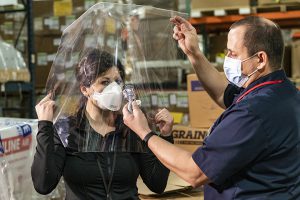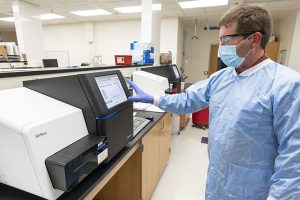Although Manasi Passi-Simhan’s freshman year at UW-Madison may have been mostly virtual in the classroom, her participation in the Undergraduate Research Scholars (URS) program provided in-person learning at the WSLH Trace Elements Clean Lab and a promising start to a long research career.
According to UW-Madison, “URS is dedicated to enhancing the academic experience of UW-Madison students by providing first- and second-year undergraduates, and transfer students in their first year at UW with opportunities to earn credit for participating in research and creative practice with UW-Madison faculty and staff.”
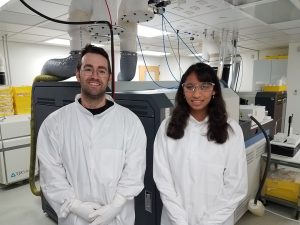
Dr. Sean Scott (left) and Manasi Passi-Simhan stand in front of the Multi-Collector ICP-MS instrument in the WSLH Trace Elements Clean Laboratory.
Manasi (right) was paired with WSLH Assistant Scientist Sean Scott, PhD, (left) to conduct lead isotope research on dried blood spots. This summer Manasi and Sean continue their collaboration as she participates in the UW Honors Summer Sophomore Apprenticeships program and they look at the history of metals deposition in ponds in the UW Arboretum.
Sean was awarded a URS Exceptional Mentorship Award for their work. According to URS Director Hannah Bailey, “The relationship between URS Mentors and their URS Scholars is unique on our campus. This high-impact mentorship practice provides early undergraduates with valuable skills that help them pursue scholarship at the next level.”
We asked Manasi to tell us about her experience over the past year and her plans for the future.
Tell us a little bit about yourself –
I am a rising sophomore at UW-Madison, majoring in Biology and Environmental Studies with a focus in evolutionary and population biology. I am from Milwaukee, WI, and some of my interests include swimming, documentary/film-making, astronomy, and hiking.
What interested you about participating in the Undergraduate Research Scholars program?
I was looking for a way to gain some research experience in a university setting and felt like URS did a good job of bridging that gap between high school and university for new students. Additionally, URS appeals to a large range of majors, from the humanities to STEM, which I found to be really exciting.
How were you matched with Sean as a mentor?
As a URS scholar, we are asked to list our top 5 research topics from a master list. We are then paired with one or two of our five choices for an interview. Luckily, I was paired with my top research choices, which was how I got the chance to join Sean in the WSLH lab.
Tell us a bit about the research you did this past year at the WSLH and also the research project you are working on this summer?
Over the past school year, I worked on developing a methodology to measure blood spots for Pb (lead) isotope ratios to come up with a more effective way of tracing Pb poisoning. The data was collected through the use of a multi-collector inductively coupled plasma mass spectrometer and provided us with the conclusion that blood spots could be used to measure isotopic ratios fairly accurately with little interference. With further testing and peer review, the use of blood spots to trace Pb poisoning could become a strong candidate for state health departments in the future.
This summer, I chose to focus my research on the Pb analysis of two ponds in the UW Arboretum. My project looks at the accumulation of metals in sediment caused by storm water runoff. By sampling differing layers of the core samples, we can effectively create a historical timeline of the ponds based on the changing Pb sources.
What did you like most and least about the research project?
I find the hands on experience paired with the one-on-one nature of the research to be really fun. It’s nice to have a mentor that is so enthusiastic about their field of research as it makes it even more interesting.
One drawback of the research project is the amount of time it takes to process the samples prior to measuring and analyzing – definitely a lot of pipetting!
How did the pandemic affect your research project – or did it not affect it? What was it like being a freshman in college during the pandemic?
Having started university in the middle of a pandemic, Zoom meetings and emails (opposed to face to face discussions) became a daily occurrence. Thankfully, I was one of the lucky few who was able to work in-person every month which made the research far more interactive.
What are your plans for the future? How do you think participating in the URS program will help you accomplish these goals?
I plan on completing my degree and hopefully continuing my research with my mentor as well. I am thankful to have gotten the chance to start the research experience so early in my career as I feel like I have a much better understanding of what research really is on a university level; I hope to be able to incorporate all I have learned into my profession one day as well.
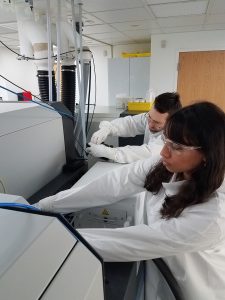
Manasi Passi-Simhan (front) and Dr. Sean Scott prepare the Multi-Collector ICP-MS instrument for analysis.
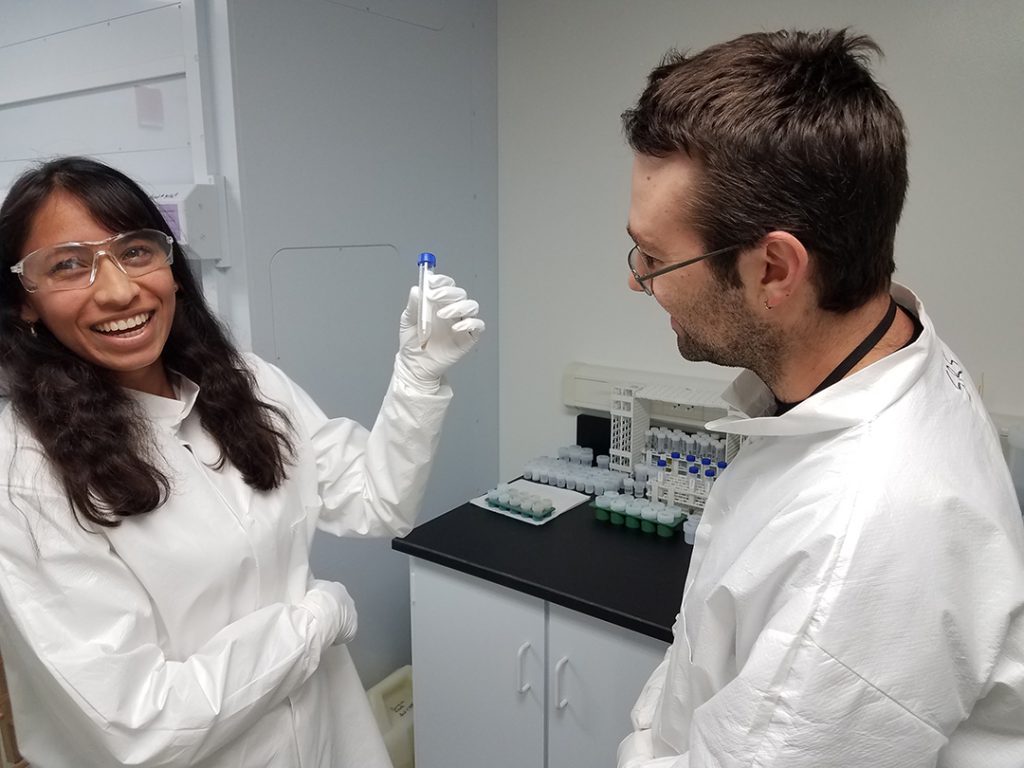
Manasi Passi-Simhan and Dr. Sean Scott examine one of the UW Arboretum sediment samples for their summer research project.
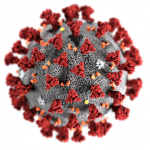 WSLH Communicable Disease Division scientists developed a quantitative RT-PCR test for SARS-CoV-2 as part of a CDC-led study looking at the effectiveness in real-world conditions of the mRNA vaccines developed by Pfizer-BioNTech and Moderna. The results of the study were published in the June 30th
WSLH Communicable Disease Division scientists developed a quantitative RT-PCR test for SARS-CoV-2 as part of a CDC-led study looking at the effectiveness in real-world conditions of the mRNA vaccines developed by Pfizer-BioNTech and Moderna. The results of the study were published in the June 30th  Heather Barkholtz, PhD, joined the Wisconsin State Laboratory of Hygiene and the University of Wisconsin-Madison
Heather Barkholtz, PhD, joined the Wisconsin State Laboratory of Hygiene and the University of Wisconsin-Madison 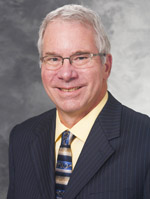 Peter Shult, emeritus director of the Wisconsin State Laboratory of Hygiene (WSLH) Communicable Disease Division, received the Lifetime Achievement Award from the
Peter Shult, emeritus director of the Wisconsin State Laboratory of Hygiene (WSLH) Communicable Disease Division, received the Lifetime Achievement Award from the 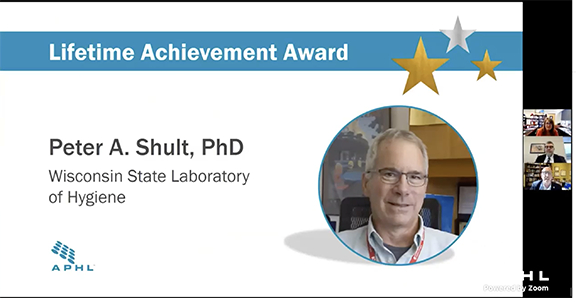
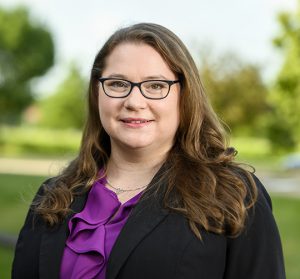 Alana Sterkel, PhD, D(ABMM), SM(ASCP)CM has been promoted to Associate Director of the WSLH
Alana Sterkel, PhD, D(ABMM), SM(ASCP)CM has been promoted to Associate Director of the WSLH 